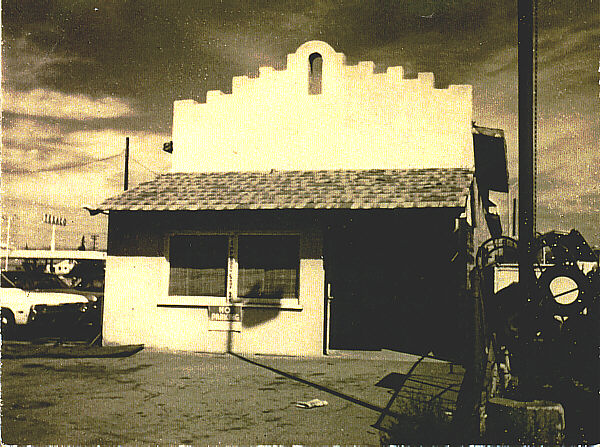 Above the dais in the Assembly chambers is the Latin saying, “Legislatorum Est Justas Leges Condere,” which translates into, “It is the duty of the legislators to make just laws.”
Above the dais in the Assembly chambers is the Latin saying, “Legislatorum Est Justas Leges Condere,” which translates into, “It is the duty of the legislators to make just laws.”
While it’s important that the Legislature pass just laws, it’s just as important that those decisions are made following the state constitution and the rules of the house.
In June, after the Legislature passed and Gov. Jerry Brown signed a record-setting $115 billion general-fund budget, the governor called a special session to address health care and transportation.
This is troubling in itself, because these issues should have been tackled during the regular session when the state received $1.3 billion over revenue projections. But Brown and the majority party chose to spend money on other priorities such as free health care to the children of illegal immigrants.
The state constitution restricts special sessions to the subject matter outlined in the governor’s proclamation.
The health care special session is intended to address funding a $1.1 billion shortfall for Medi-Cal, as well as challenges for in-home supportive services and the developmentally disabled.
The transportation special session is intended to address the lack of funding required to fix California’s crumbling roads and highways.
Brown in his February “State of the State” address acknowledged that California is $59 billion in arrears as it pertains to road and bridge maintenance and construction.
Each of these are serious challenges that require the Legislature’s undivided attention and bipartisan solutions. Unfortunately, the special sessions have been abused by some of my colleagues and used as an opportunity to push forward proposals that have nothing to do with the intended purpose of either special session.
According to the governor’s June 16 Second Extraordinary Session Proclamation (health care special session), the session was called to “consider and act upon legislation necessary to enact permanent and sustainable funding from a new managed care organization tax and/or alternative fund sources.”
During the health care special session, for example, my colleagues across the aisle resurrected proposals that had been previously defeated – including raising the age of smoking to 21 and the regulation of e-cigarettes. What does either of these proposals have to do with health care funding? Nothing.
Whether I personally agree or disagree with a specific policy, introducing legislation that isn’t a solution to the special sessions is fundamentally wrong. A special session on health care finance is not the appropriate arena to address assisted suicide legislation.
Once a special session is called, both the Senate and Assembly are to establish and assemble committees to hear bills introduced in each house. In the Assembly, committee members were hand-selected to give these types of proposals the best chance for passage.
As a bill introduced in a special session, ABX2-15, the measure to authorize assisted suicide, avoided much of the normal legislative process. The special session process allowed it conveniently to circumnavigate much of what a regular bill goes through, and the measure wasn’t even in print for 30 days before being ordered to enrolling and engrossing.
The passage of this bill made a mockery of the legislative process. If an issue this contentious should become law, it should do so in a transparent manner and be given the time and attention it deserves. Brown even weighed in on the issue, messaging through staff his criticism of the “legislative corner-cutting.”
Process is the cornerstone of our institution and is something the California Legislature should pride itself on. If we, the representatives, don’t respect that process and instead push measures outside the scope of a special session, we aren’t respecting the institution and are essentially creating an anti-democratic body.
I have always been one to respect the institution that is the California Legislature. Other than representing our constituencies, abiding by the rules and procedures of each house should be at the top of everyone’s list.
In the last few weeks of the session, I witnessed the majority party undermine democratic principles and violate rules to implement personal agendas. This type of behavior is bad for the institution and damages the public’s faith in its government.
Scott Wilk represents the 38th Assembly District, which encompasses Simi Valley, the northern San Fernando Valley and most of the Santa Clarita Valley.
Like this:
Like Loading...
Related









 Tweet This
Tweet This Facebook
Facebook Digg This
Digg This Bookmark
Bookmark Stumble
Stumble RSS
RSS





































REAL NAMES ONLY: All posters must use their real individual or business name. This applies equally to Twitter account holders who use a nickname.
2 Comments
I am assuming you voted no on the assembly floor. If you in fact did then you went against the will of the many. 70% of all Californians, 60% of Catholics and 75% of Hispanics want this option. Not a gun or rope as you using the word suicide implies. Theses are people with a disease killing them, they are sick and want to liven, but want a gentle passing . Back off and urge the governor to sign the bill for end of life options. Robert Olvera MD
Dr. Olvera…where can we find the statistics you quote (70% of Californians, 60% of Catholics) that support this measure. I have not seen these numbers at all, in fact I have seen much different percentages for Catholics.